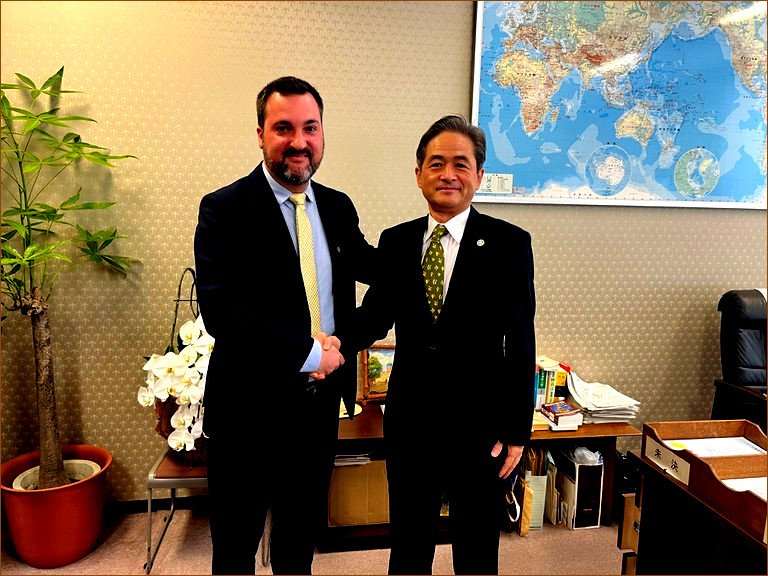In a significant diplomatic overture, from November 4 to 6, Brazil’s Ministry of Agriculture and Livestock (Mapa) orchestrated a pivotal mission in the bustling heart of Tokyo. The objective? To fortify trade ties and broaden the horizons for Brazilian agricultural products within the affluent Japanese market. This initiative resonates deeply as Brazil and Japan stand on the brink of commemorating an impressive 130-year partnership, a testament to shared aspirations for sustainable development through the recently minted Green Partnership embraced at the G20 Agriculture Working Group in Mato Grosso this past September.
Spearheaded by Luis Rua, Mapa’s Secretary of Trade and International Relations, the delegation was bolstered by the Brazilian Embassy in Japan, the Ministry of Foreign Affairs, and ApexBrasil. With a keen focus on ramping up exports of beef, pork, melons, and flour, the mission also championed the implementation of regionalized measures designed to mitigate the impact of avian influenza outbreaks.
The foundation of this mission was enriched by bilateral dialogues featuring prominent figures such as Ambassador Octávio Côrtes, Congressman Luiz Nishimori—president of the Brazil-Japan Parliamentary Friendship League—alongside Alex Giacomelli, director at the Ministry of Foreign Affairs, and heads from agriculture departments and attachés. Such collaborations underline the collaborative spirit that pervades this initiative.
Discussions with high-ranking officials, notably Yoichi Watanabe and Shigeki Mori from Japan’s Ministry of Agriculture, highlighted Brazil’s urgency for an expedited risk analysis process. This would facilitate the inclusion of additional Brazilian states, beyond just Santa Catarina, into the Japanese pork market. There’s also an urgent call to progress on beef market assessments—a crucial move towards diversifying Brazil’s animal protein exports to Japan.
Moreover, the Brazilian delegation advocated for a nuanced approach to the regionalization of avian influenza restrictions. They proposed municipal-level measures aimed at ensuring that localized outbreaks do not hinder exports from unaffected regions, thereby safeguarding the stability of Brazil’s vital poultry sector.
In addition, Brazil stressed completing the Work Plan for melon exports, especially following the recent approval of Brazilian avocados in Japan—a significant precursor to unlocking further opportunities for Brazilian agricultural products.
As the mission unfolded, a session was convened amongst SECOMS, SECTECs, and agricultural attachés, co-organized by ApexBrasil. This strategic gathering aimed to align approaches and harness prospects within Asian markets for Brazilian agribusiness.
Capping off this impactful mission was the 25th Plenary Session of the Brazil-Japan Business Council. Secretary Rua took center stage, articulating the commendable attributes of Brazilian agriculture: quality, safety, sustainability, and the potential for complementarity, asserting Brazil’s reliability as a trade partner for discerning Japanese consumers.
“Following the directives of Minister Carlos Fávaro, this mission reinforces Brazil’s role as a trusted trade partner and promoter of food security in Asia. Our goal is to establish Brazilian agribusiness as a leader in quality and sustainability, strengthening relationships that benefit both countries’ producers and consumers. We are optimistic that key issues of mutual interest will advance quickly,” Rua concluded, signaling a robust commitment to bridging cultures and economies through agriculture.

